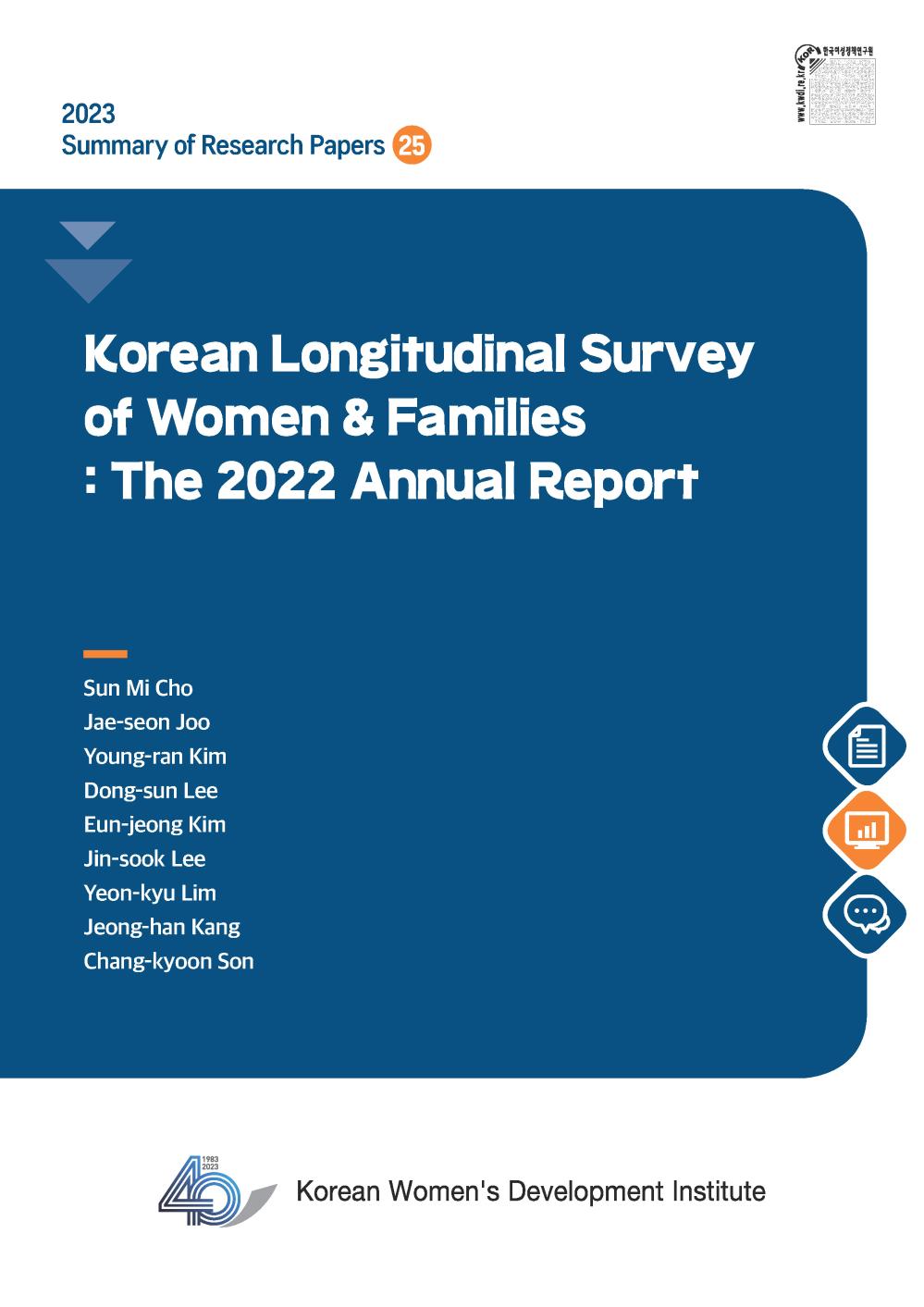Report
| Korean Longitudinal Survey of Women & Families: The 2022 Annual Report | |||
|---|---|---|---|
| Type | Basic | Period | 2023 |
| Manager | Sun Mi Cho | Date | 2023-12-29 |
| Fiie | 25_2022년 여성가족패널조사.pdf ( 1.92 MB ) | ||
|
Abstract Korean Longitudinal Survey of Women & Families : The 2022 Annual Report Sun Mi Cho Jae-seon Joo Young-ran Kim Dong-sun Lee Eun-jung Kim Jin-sook Lee Yeon-gyu Lim Jeong-han Kang Chang-kyoon Son
Women’s lives undergo changes according to various lifecycle events such as marriage, pregnancy, and childbirth. Policies for women should adequately address such lifecycle events. This calls for analyses not only at the individual level – such as family relations and economic activity status – but also at a broader level that encompasses socio-cultural factors such as family values. Therefore, statistical data that informs women’s policies should be established by contextualizing individual women not only in the private sector but also on socio-structural, perceptual, and cultural levels.
To this end, the Korean Women's Development Institute began to conduct research on the KLoWF in 2006 in order to establish a longitudinal database that keeps track of women’s lives in various aspects. The KLoWF established its first-wave panel and completed its first wave in 2007. As of 2022, the 8th wave study has been concluded and the 9th wave study is being conducted. The KLoWF study is designed to facilitate the analysis of women’s lifecycle stages and changes in family structure in a comprehensive manner. It addresses some of the limitations of earlier surveys by securing a large-scale panel sample of some 10,000 women.
In the 2022 study, we analyzed the longitudinal changes in various characteristics observed among women based on data compiled over the 1st~8th waves so that the changes over time could be examined. Furthermore, an in-depth study was conducted on the topic of ‘How Gender Inequalities in Domestic / Care Labor Allocation among Married Couples Impact Childbirth Plans: With a Focus on the Intent to Have a First and Second Child’. Another in-depth study was done on ‘COVID19 and Women’s Lives: With a Focus on Changes in Work, Care, and Everyday Life’. Here, we conduct a detailed analysis of women’s lives during the pandemic which will inform the design of policies for women in a timely manner. In particular, this year we have looked at the 609 studies that made use of KLoWF data until now, categorizing them by topic, providing a current overview of the utilization of KLoWF, and drawing some implications about how KLoWF may be utilized in the future. Furthermore, data from the 1st~8th waves have been made publicly available, alongside efforts to encourage data utilization including a data users’ conference and a graduate students’ competition for papers utilizing the KLoWF data. We have also strived to facilitate various academic activities in support of gender equality.
Research areas: Panel, Family and Care, Work-life balance, Gender equality culture and awareness, Labor and Employment, Low birth and Aging Keywords: Family and Care, Work-life balance, Gender equality culture and awareness, Labor and Employment, Low birth and Aging |
|||
